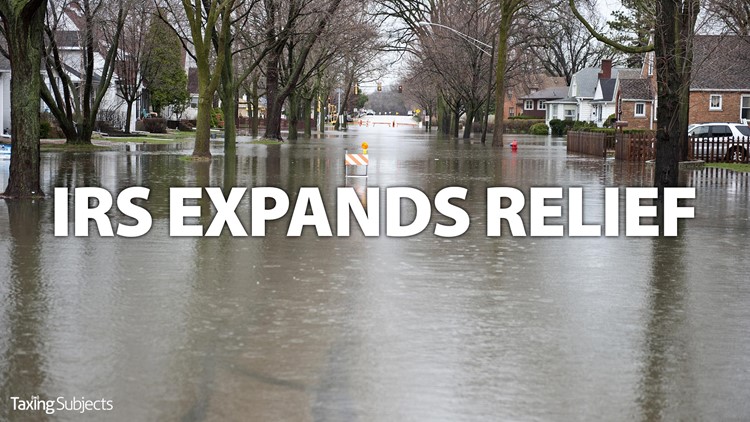IRS Adds Measures to Hurricane Harvey Relief

The Internal Revenue Service has expanded its relief for taxpayers due to Hurricane Harvey.
In order to help with recovery efforts, the IRS has waived its penalty for using dyed diesel fuel for highway use. The waiver means off-road diesel can be sold and used on the road without penalty for the life of the waiver.
The waiver applies until September 15 in the areas where the Environmental Protection Agency had issued waivers for Texas Low-Emission Diesel Fuel:
The Houston-Galveston-Brazoria area (the counties of Brazoria, Chambers, Fort Bend, Galveston, Harris, Liberty, Montgomery, and Waller); the Beaumont-Port Arthur area (the counties of Hardin, Jefferson, and Orange); the Dallas-Fort Worth area (the counties of Collin, Dallas, Denton, Tarrant, Ellis, Johnson, Kaufman, Parker, and Rockwall); and the counties of Anderson, Angelina, Aransas, Atascosa, Austin, Bastrop, Bee, Bell, Bexar, Bosque, Bowie, Brazos, Burleson, Caldwell, Calhoun, Camp, Cass, Cherokee, Colorado, Comal, Cooke, Coryell, De Witt, Delta, Falls, Fannin, Fayette, Franklin, Freestone, Goliad, Gonzales, Grayson, Gregg, Grimes, Guadalupe, Harrison, Hays, Henderson, Hill, Hood, Hopkins, Houston, Hunt, Jackson, Jasper, Karnes, Lamar, Lavaca, Lee, Leon, Limestone, Live Oak, Madison, Marion, Matagorda, McLennan, Milam, Morris, Nacogdoches, Navarro, Newton, Nueces, Panola, Polk, Rains, Red River, Refugio, Robertson, Rusk, Sabine, San Jacinto, San Patricio, San Augustine, Shelby, Smith, Somervell, Titus, Travis, Trinity, Tyler, Upshur, Van Zandt, Victoria, Walker, Washington, Wharton, Williamson, Wilson, Wise, and Wood.
This penalty relief is available to any person that sells or uses dyed fuel for highway use. In the case of the operator of the vehicle in which the dyed fuel is used, the relief is available only if the operator or the person selling the fuel pays the tax of 24.4 cents per gallon that is normally applied to diesel fuel for highway use. The IRS will not impose penalties for failure to make semimonthly deposits of this tax. IRS Publication 510, Excise Taxes, has information on the proper method for reporting and paying the tax.
Ordinarily, dyed diesel fuel isn’t taxed, because it is sold for uses that are exempt from excise tax, such as farming or local government transportation.
Retirement Plans Can Make Loans, Distributions
The IRS has also announced that 401(k) plans and similar employer-sponsored retirement plans can make loans and hardship distributions to victims of Hurricane Harvey and their family members. The same relief measure was extended last year to Louisiana flood victims and taxpayers affected by Hurricane Matthew.
Participants in 401(k) plans, employees of public schools and tax-exempt organizations with 403(b) tax-sheltered annuities, as well as state and local government employees with 457(b) deferred-compensation plans, may be eligible to take advantage of these streamlined loan procedures and liberalized hardship distribution rules. Though IRA participants are barred from taking out loans, they may be eligible to receive distributions under liberalized procedures.
The IRS is also relaxing some rules that normally apply to retirement plan loans and hardship distributions. As a result, eligible retirement plan participants will be able to access their money more quickly with a minimum of red tape. In addition, the six-month ban on 401(k) and 403(b) contributions that normally affects employees who take hardship distributions will not apply.
This broad-based relief means that a retirement plan can allow a victim of Hurricane Harvey to take a hardship distribution or borrow up to the statutory limits from the victim’s retirement plan. It also means that a person who lives outside the disaster area can take out a retirement plan loan or hardship distribution and use it to assist a son, daughter, parent, grandparent or other dependent who lived or worked in the disaster area.
For more information, check out Announcement 2017-11 or visit the IRS disaster relief web page on IRS.gov.



